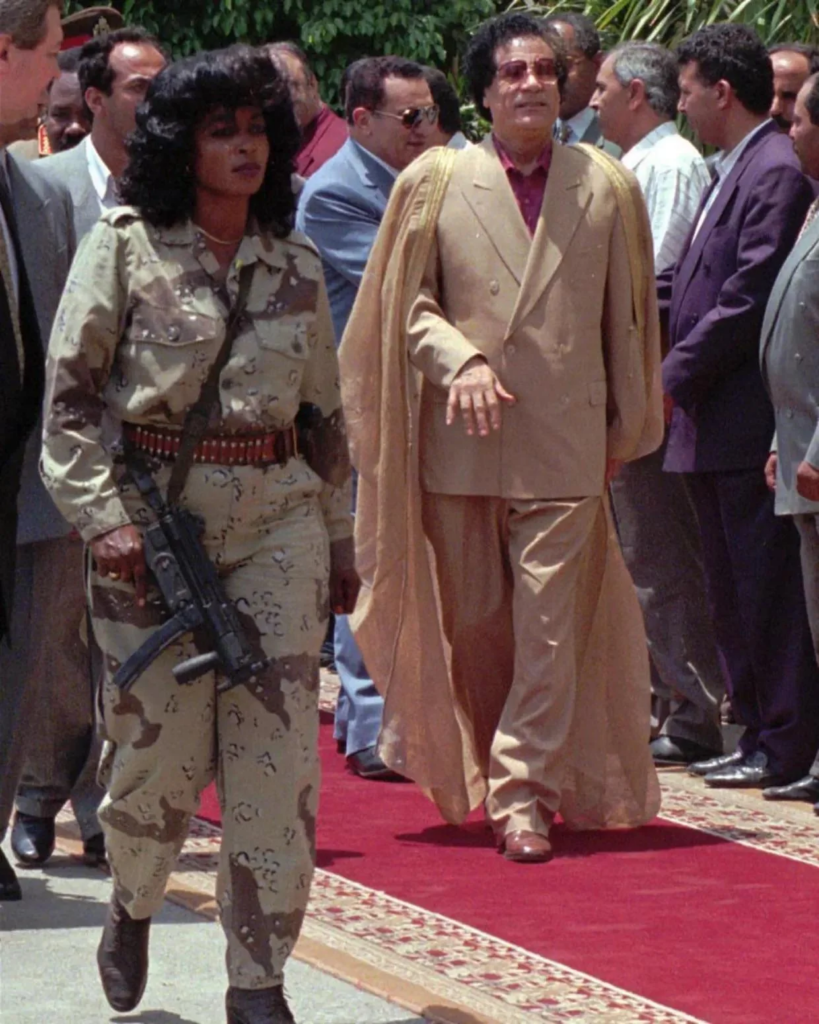Muammar Gaddafi
When you hear the name Muammar Gaddafi, what comes to mind? A dictator? A tyrant? Perhaps a terrorist? For many in Libya, the narrative may differ. Gaddafi ruled Libya for 41 years, until his death in 2011. While international media often painted him as a ruthless autocrat, there is more to the story. Gaddafi implemented transformative policies in Libya, many of which remain largely unknown. Here are ten surprising facts about Gaddafi’s Libya that may challenge your perspective.
1. Housing Was a Guaranteed Human Right
Gaddafi believed everyone deserved a home. His Green Book, the cornerstone of his political philosophy, declared that housing was a basic human need. The government ensured homes were not owned by others, preventing the exploitation of tenants by landlords. This principle was even taught in Libyan schools as part of the national curriculum.

2. Free Education and Healthcare for All
Education and healthcare were free for all Libyan citizens. Gaddafi’s government developed one of the most advanced healthcare systems in Africa and the Arab world. If medical treatments or specialized education weren’t available locally, citizens could travel abroad—fully funded by the state. This policy drastically improved the quality of life in Libya.
3. The Great Man-Made River: A Modern Engineering Marvel
Gaddafi initiated the Great Man-Made River project, the world’s largest irrigation system. This ambitious plan provided water to Libyans across the country, transforming arid land into fertile ground. Gaddafi called it “the eighth wonder of the world,” reflecting its scale and importance to Libya’s development.
4. Farmers Received Land and Equipment for Free
Starting a farm in Libya was remarkably accessible under Gaddafi. Aspiring farmers were given land, a home, seeds, and livestock—all at no cost. This policy aimed to boost agricultural self-sufficiency and reduce reliance on imported food.

5. Support for New Mothers
In Libya, new mothers received financial support upon the birth of their child. Every Libyan woman was given $5,000 after childbirth, intended to help both the mother and the newborn. This initiative demonstrated a commitment to family welfare and economic stability.
6. No Electricity Bills
Electricity was free for all Libyans during Gaddafi’s rule. Citizens never had to worry about paying for electricity, an uncommon benefit in most nations. This ensured access to power for even the poorest families.
7. Affordable Fuel Prices
Libya’s oil wealth allowed Gaddafi to keep petrol prices extremely low. At just $0.14 per liter, Libyans enjoyed some of the cheapest fuel prices in the world. This affordability made transportation accessible to all, boosting economic activity.
8. Education Standards Rose Drastically
Before Gaddafi’s rule, literacy rates in Libya were only 25%. His administration invested heavily in education, raising literacy to 87% and ensuring 25% of Libyans earned university degrees. Education was prioritized as a tool for national development.
9. Libya Operated a State-Owned Bank
Libya was the only nation with a fully state-owned central bank. Citizens could access loans with zero interest, as mandated by law. Moreover, Libya had no external debt, a rare achievement in today’s global financial landscape.
10. The Ambitious Gold Dinar Plan
One of Gaddafi’s most controversial initiatives was his push for a gold-backed African currency, the “gold dinar.” Inspired by Pan-Africanist Marcus Garvey, Gaddafi envisioned a united Africa trading in gold instead of relying on foreign currencies like the U.S. dollar or euro. If implemented, the plan could have disrupted global markets and empowered African nations to negotiate fair prices for their resources. Many speculate that this bold idea played a role in NATO’s intervention in Libya.

Gaddafi: Tyrant or Visionary?
Was Gaddafi a dictator, or was he a leader with a unique vision for his country and Africa? The answer depends on whom you ask. Libyan citizens benefitted from significant social programs under his rule, but his leadership was also marked by accusations of human rights abuses and autocracy.
Regardless of the controversies, Gaddafi’s policies reshaped Libya and left an undeniable impact. His efforts to empower Africa and his citizens remain a complex legacy that invites reflection. As we consider his reign, it’s worth looking beyond the headlines and examining the full picture.
Our Visitor






 Users Today : 13
Users Today : 13


